Google is spending big on carbon capture technology – here’s why
The tech giant has struck a new deal to capture 100,000 tons of CO2 by 2032

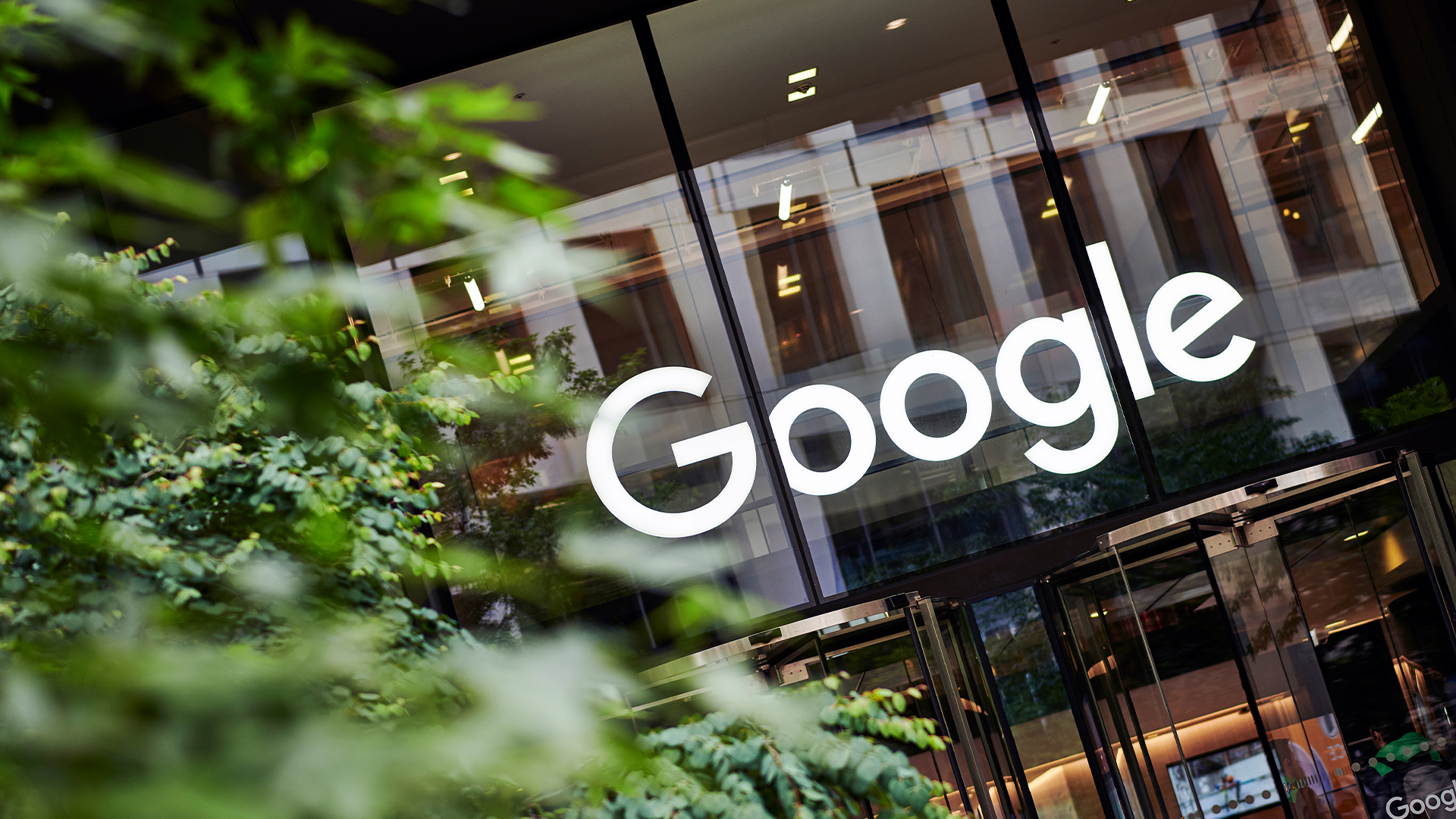
Google has signed a carbon removal deal with direct air capture provider, Holocene, at the bargain price of $100 per ton.
The tech giant revealed this is the lowest price on record for this technology, signalling a huge shift in the potential of the process in helping support environmental targets.
Currently, carbon removal prices tend to amount to many hundreds of dollars per ton of CO2 removed. The low price in this deal comes partly thanks to up-front financial support from Google, along with a hefty subsidy from the US government through its 45Q tax credit.
The subsidy incentivizes investment in DAC by giving suppliers $180 per ton of carbon removed.
"The structure of this partnership — providing immediate funding to achieve an ambitious but important price in the medium term — is just one way to support carbon removal as it scales," said Randy Spock, Google's carbon credits and removals lead.
"We hope it will inspire the market to increase its support for solutions that have a strong chance of achieving global impact in the decades ahead, and give those solutions the near-term resources they need to demonstrate their viability and achieve commercial scale."
Holocene's approach combines elements of both liquid and solid-based systems, which Google said has high potential to reduce costs.
Sign up today and you will receive a free copy of our Future Focus 2025 report - the leading guidance on AI, cybersecurity and other IT challenges as per 700+ senior executives
It uses amino acids and other organic compounds to continuously capture CO2 from ambient air. Once captured, the CO2 is concentrated and heated to low temperatures to create a pure stream of CO2 that can be transported and permanently stored.=
This low-temperature heat can be sourced from carbon-free or waste heat sources, while Holocene's chemical process uses widely-available industrial equipment, making it more practical to scale cleanly and affordably.
Google move builds on hefty investment in carbon capture
The deal follows a commitment from Google earlier this year to invest $35 million in carbon capture projects, matching the US Department of Energy’s (DOE) Carbon Dioxide Removal Purchase program dollar for dollar.
It will see Holocene capturing and storing 100,000 tons of CO2 by the early 2030s - the equivalent of around 20,000 gas-powered vehicles driven in one year.
"While this is significantly more CO2 than has been removed and stored by DAC solutions to date, it’s nowhere near the volume of carbon removal that is needed on a planetary scale," says Spock.
"But achieving lower cost DAC at a small scale is a first step towards giving the carbon removal market confidence that reaching millions, and even billions, of tons per year could be possible."
In fact, the deal covers just a fraction of Google's carbon dioxide emissions, which last year amounted to 14.3 million metric tons - up 48% since 2019 and 13% on the previous year.
The company previously attempted to mitigate its emissions through purchasing carbon offsets, but abandoned this approach after criticism from environmental groups.
A key factor in Google’s surging energy consumption and environmental impact has been its sharpened focus on generative AI since late 2022. Rising power demands due to the technology mean the tech giant - and competitors such as Microsoft - have recorded skyrocketing consumption rates.
Emma Woollacott is a freelance journalist writing for publications including the BBC, Private Eye, Forbes, Raconteur and specialist technology titles.
-
 The six biggest security challenges coming in 2026
The six biggest security challenges coming in 2026In-depth What will be the main challenges businesses face in 2026 and what can they do to prepare?
-
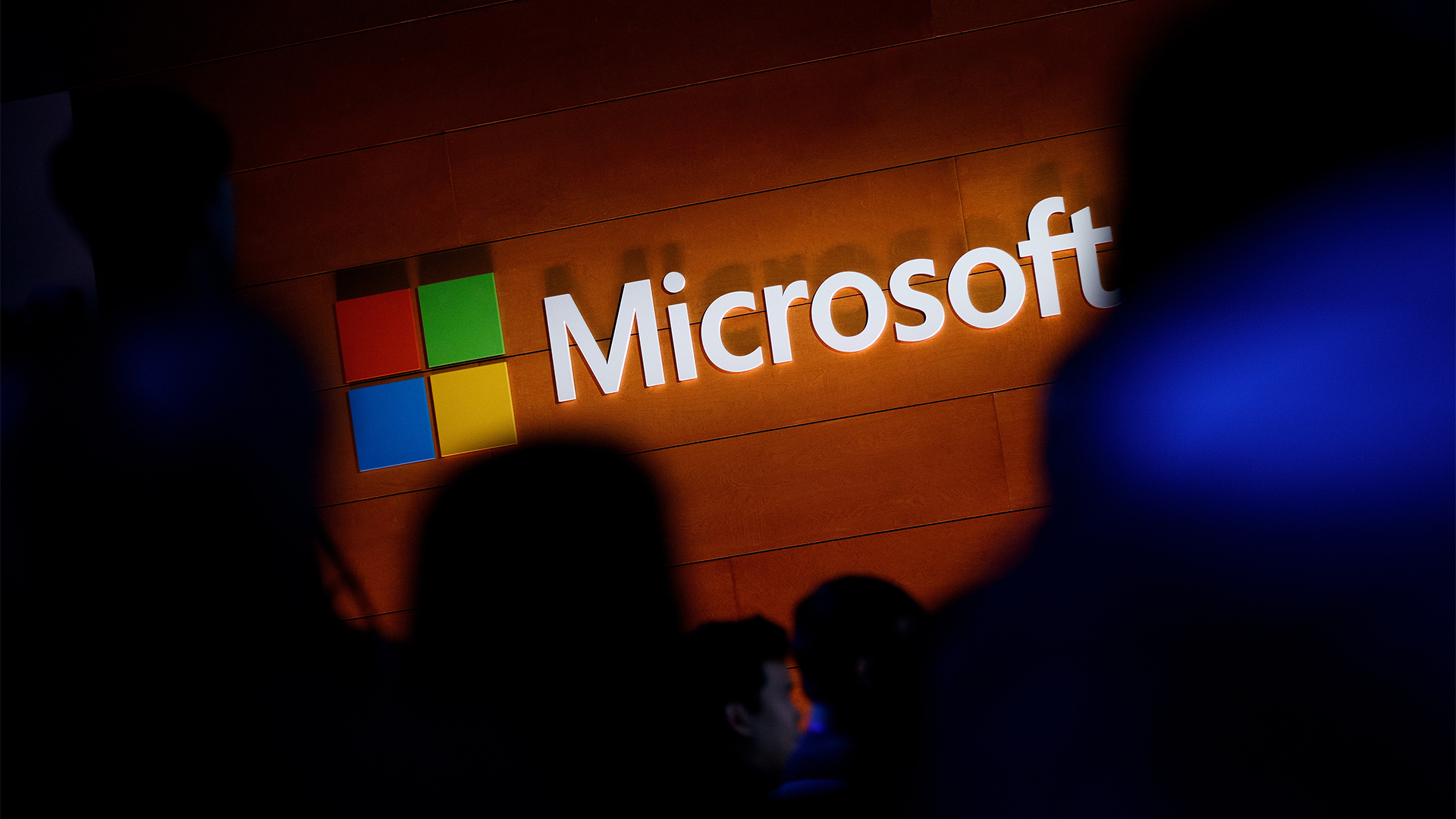 Channel focus: All you need to know about Microsoft's partner program
Channel focus: All you need to know about Microsoft's partner programChannel Focus The veteran OS developer and vendor continues to advance its strategy, particularly in Azure cloud solutions and AI
-
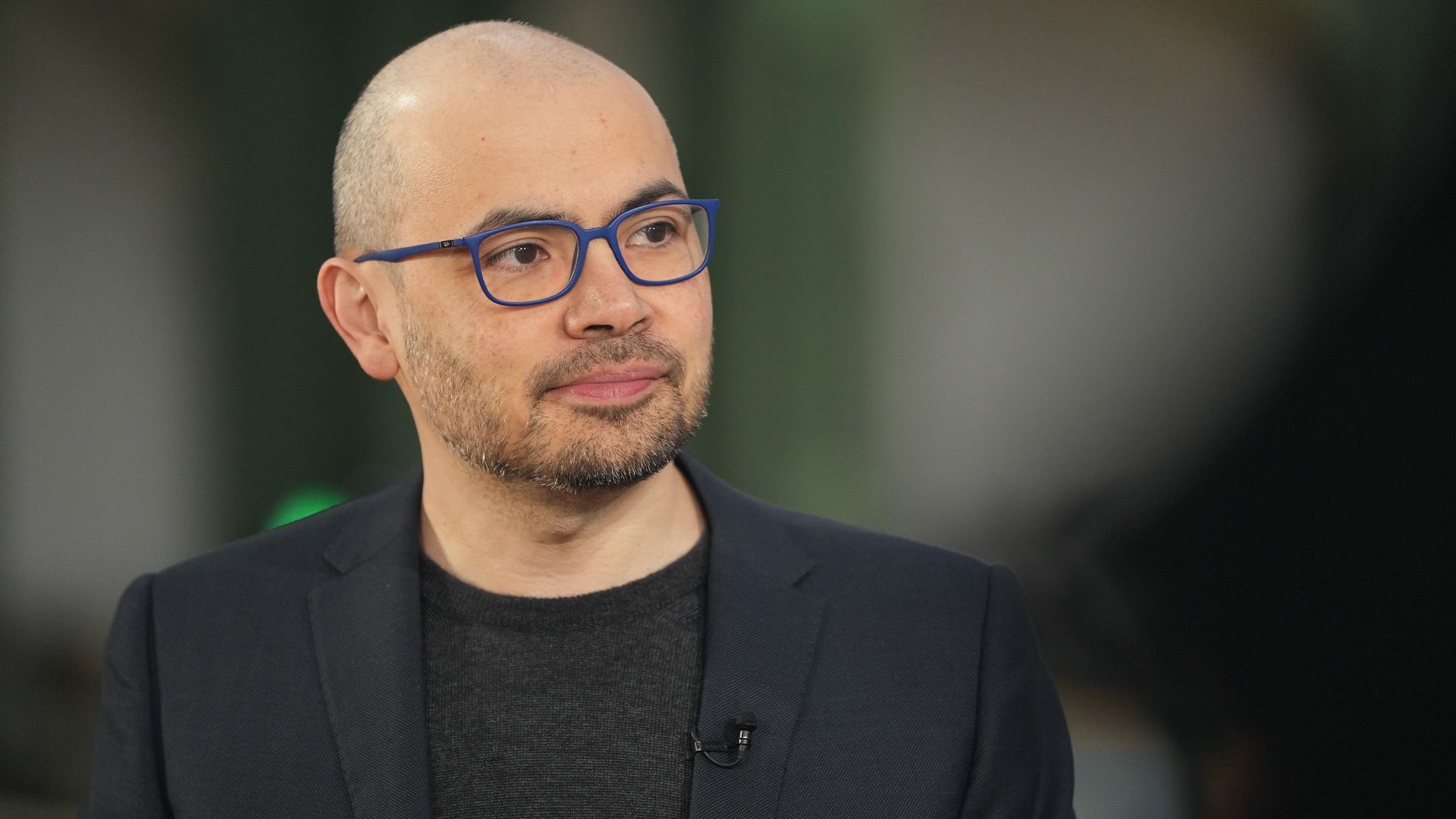 Google DeepMind CEO Demis Hassabis thinks startups are in the midst of an 'AI bubble'
Google DeepMind CEO Demis Hassabis thinks startups are in the midst of an 'AI bubble'News AI startups raising huge rounds fresh out the traps are a cause for concern, according to Hassabis
-
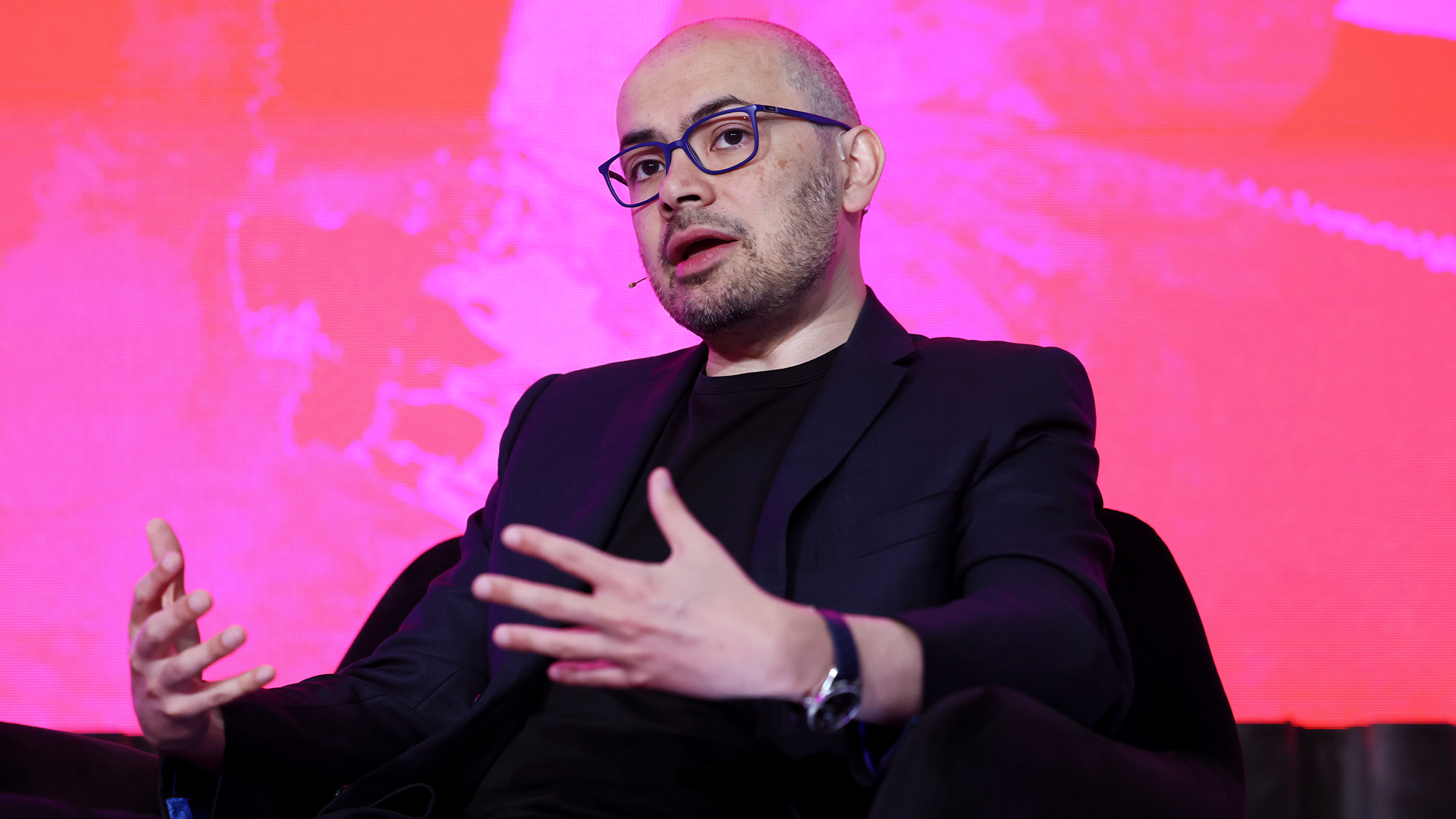 Google DeepMind partners with UK government to boost AI research
Google DeepMind partners with UK government to boost AI researchNews The deal includes the development of a new AI research lab, as well as access to tools to improve government efficiency
-
 Google blows away competition with powerful new Gemini 3 model
Google blows away competition with powerful new Gemini 3 modelNews Gemini 3 is the hyperscaler’s most powerful model yet and state of the art on almost every AI benchmark going
-
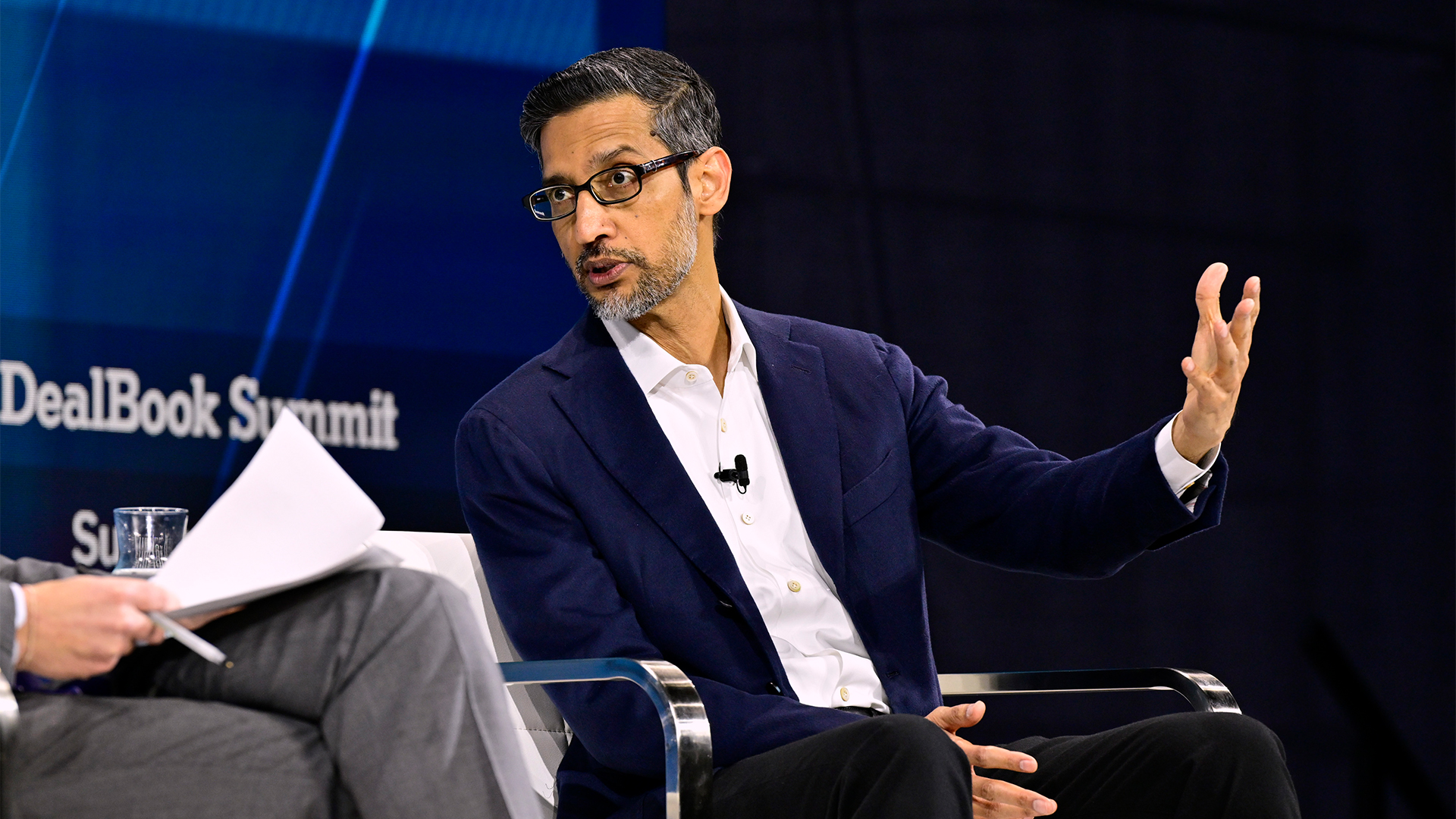 Google CEO Sundar Pichai sounds worried about a looming AI bubble – ‘I think no company is going to be immune, including us’
Google CEO Sundar Pichai sounds worried about a looming AI bubble – ‘I think no company is going to be immune, including us’News Google CEO Sundar Pichai says an AI bubble bursting event would have global ramifications, but insists the company is in a good position to weather any storm.
-
 Some of the most popular open weight AI models show ‘profound susceptibility’ to jailbreak techniques
Some of the most popular open weight AI models show ‘profound susceptibility’ to jailbreak techniquesNews Open weight AI models from Meta, OpenAI, Google, and Mistral all showed serious flaws
-
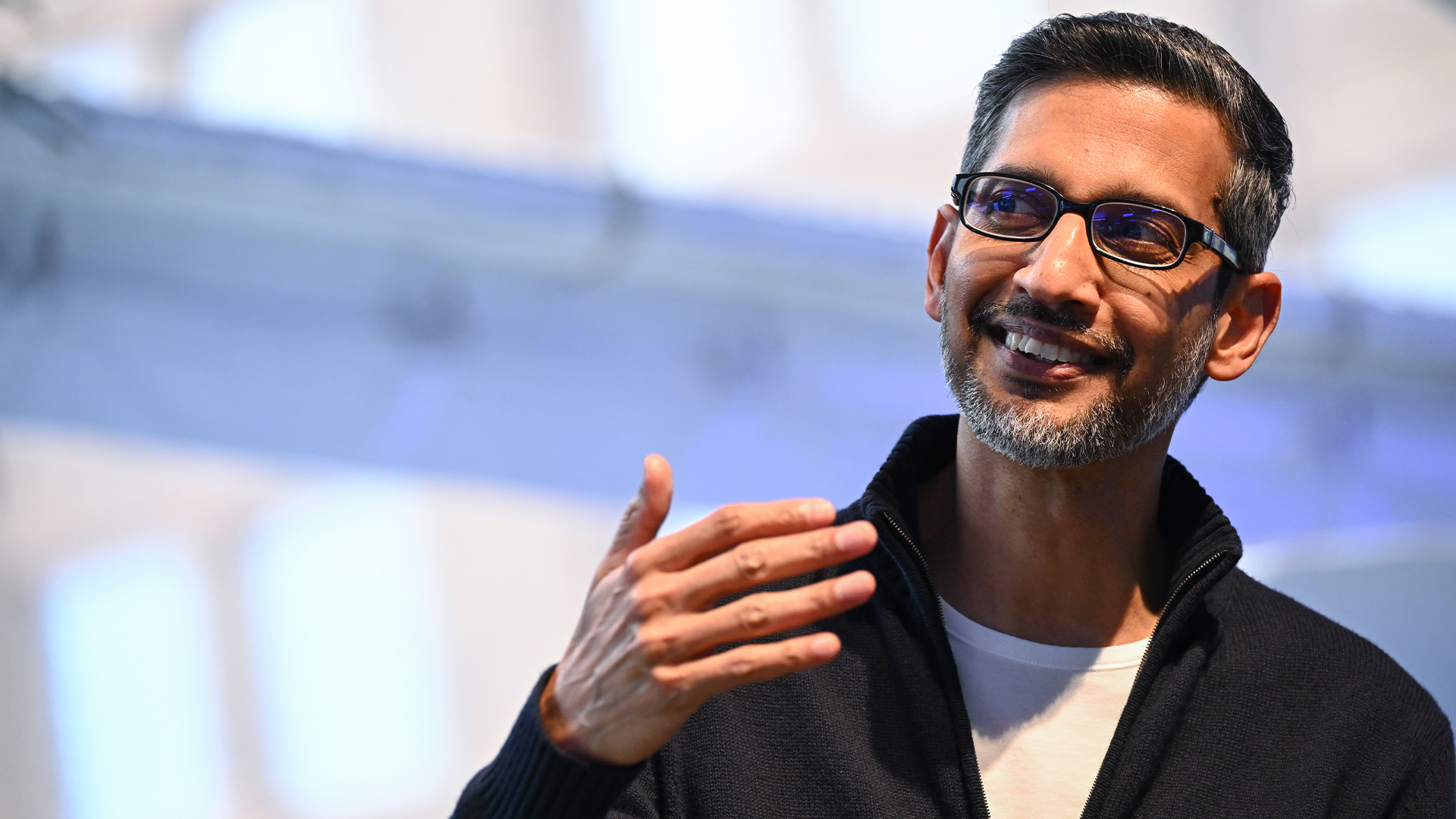 Sundar Pichai thinks commercially viable quantum computing is just 'a few years' away
Sundar Pichai thinks commercially viable quantum computing is just 'a few years' awayNews The Alphabet exec acknowledged that Google just missed beating OpenAI to model launches but emphasized the firm’s inherent AI capabilities
-
 Google boasts that a single Gemini prompt uses roughly the same energy as a basic search – but that’s not painting the full picture
Google boasts that a single Gemini prompt uses roughly the same energy as a basic search – but that’s not painting the full pictureNews Google might claim that a single Gemini AI prompt consumes the same amount of energy as a basic search, but it's failing to paint the full picture on AI's environmental impact.
-
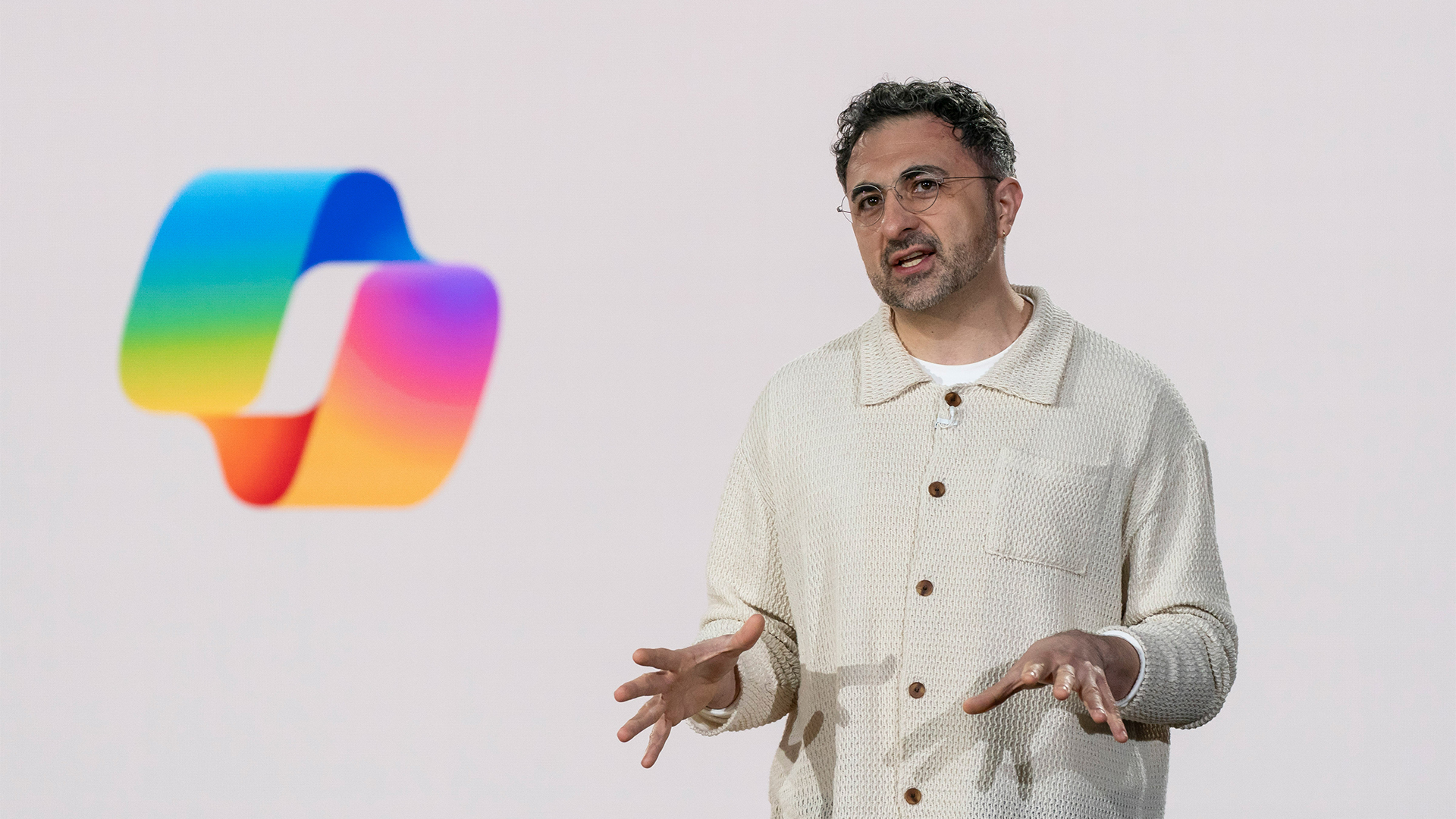 ‘LaMDA was ChatGPT before ChatGPT’: Microsoft’s AI CEO Mustafa Suleyman claims Google nearly pipped OpenAI to launch its own chatbot – and it could’ve completely changed the course of the generative AI ‘boom’
‘LaMDA was ChatGPT before ChatGPT’: Microsoft’s AI CEO Mustafa Suleyman claims Google nearly pipped OpenAI to launch its own chatbot – and it could’ve completely changed the course of the generative AI ‘boom’News In a recent podcast appearance, Mustafa Suleyman revealed Google was nearing the launch of its own ChatGPT equivalent in the months before OpenAI stole the show.
